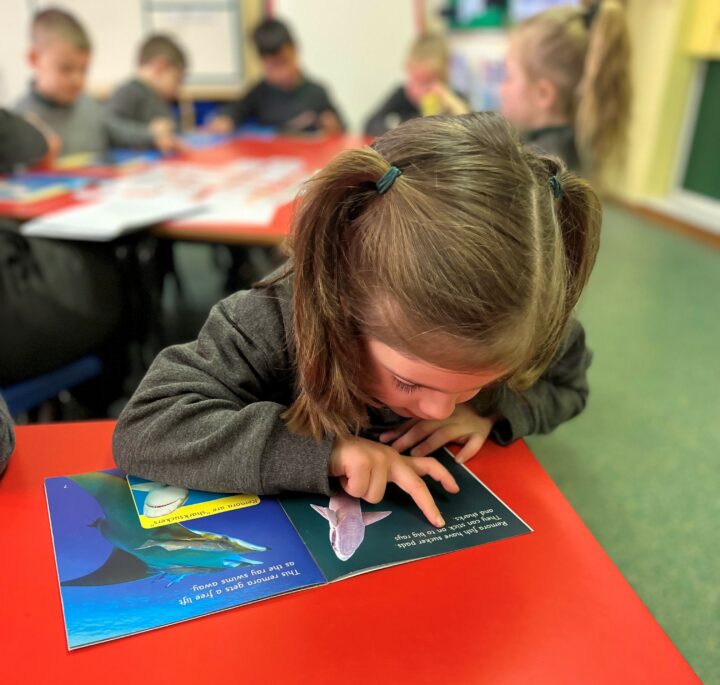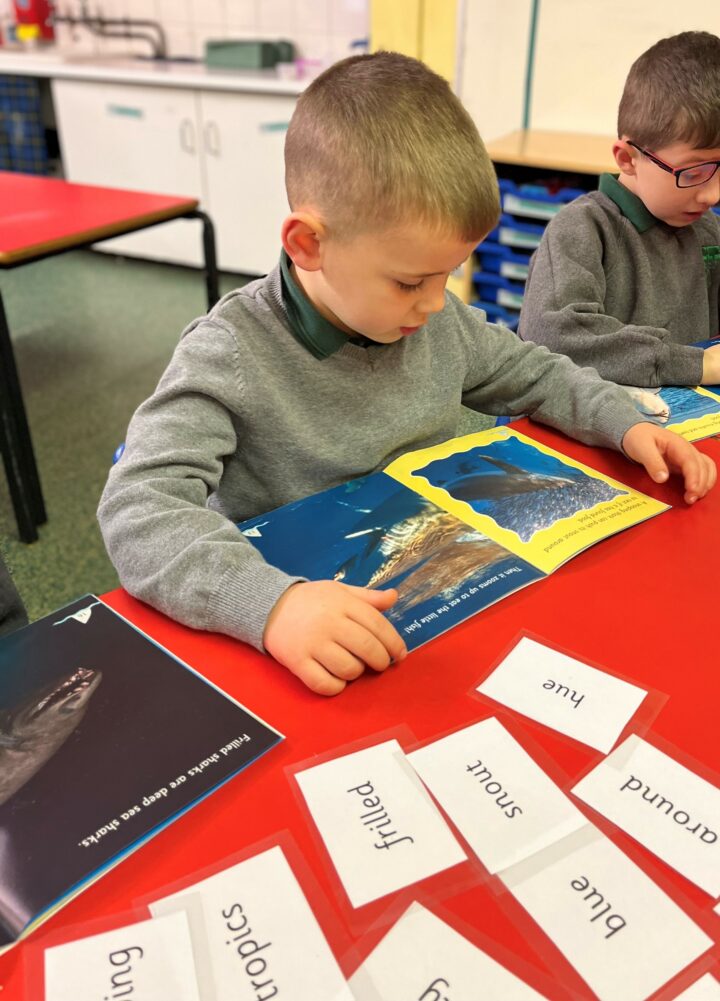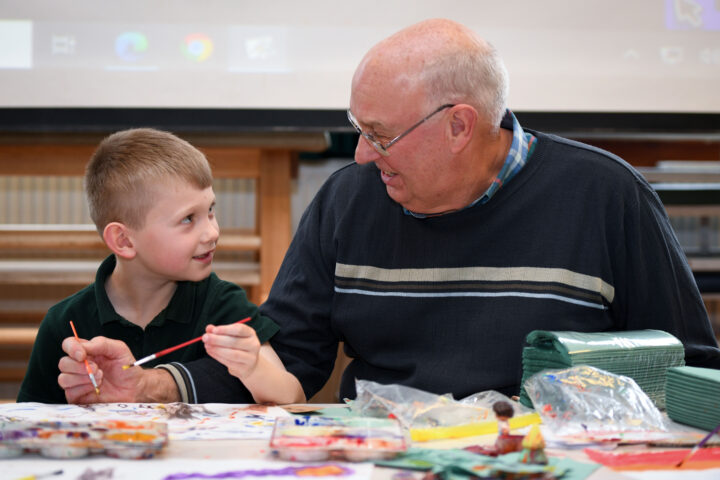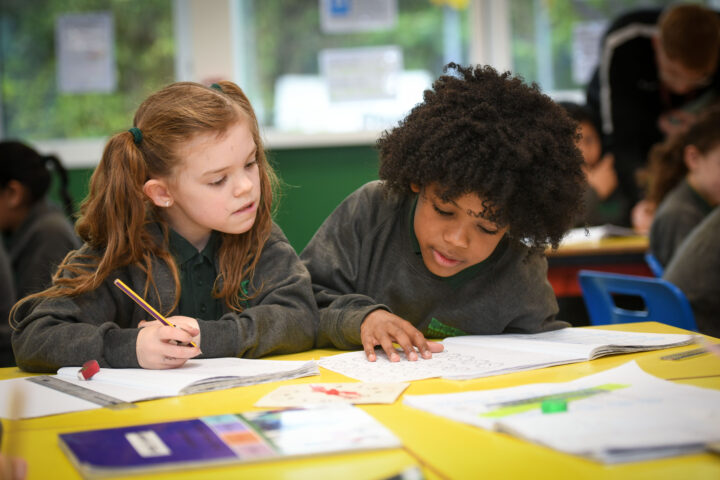English

English
Reading

At Hill West we understand that we must teach every child to read regardless of their background, needs or abilities. We want children to develop a genuine love of books and thirst for literature. We want them to read books written by a wide range of authors and we want all of our children, before they leave us, to read many of the classics.
We understand that when children make good progress in Reading they also find success in other individual subject disciplines; fluent readers learn more because they can read and gain knowledge for themselves. The ability to read fluently, comprehend and interpret is a prerequisite to success in later life. It is essential that our approach to teaching phonics and reading is accessible to all learners, regardless of background.
Early Reading and Phonics

We teach early reading through the systematic, synthetic phonics programme Little Wandle Letters and Sounds Revised. Right from the start of Reception children have a daily phonics lesson which follows the progression for Little Wandle Letters and Sounds and this continues in Year 1 to ensure children become fluent readers.
We teach phonics for 30 minutes a day. In Reception, we build from 2-minute lessons, with additional daily oral blending games, to the full-length lesson as quickly as possible. Each Friday, we review the week’s teaching to help children become fluent readers.
Children make a strong start in Reception: teaching begins in Week 2 of the Autumn term. We follow the Little Wandle Letters and Sounds Revised expectations of progress (please click here for the progression).
Four new phonemes and their corresponding graphemes are taught (GPCs) each week and they are then used in the final lesson of the week to review the week’s learning. Children will also learn tricky words during these sessions.
In the Autumn and Spring term, Reception learn phase 2 and phase 3 GPCs and then will spend the final term learning phase 4.
Year 1 begin the Autumn term with 3 weeks of revision of phases 2, 3 and 4 before learning phase 5, which will be completed by the end of the year. Year 2 children will begin the year by revisiting phase 5 and other previously taught phases to ensure all children are completely confident with applying these GPCs in both their reading and also their writing. (please see the overview here for what this progression looks like).
Half termly assessments take place through Reception and Year 1 to help inform future teaching and help identify children who have gaps in their phonic knowledge and need additional practice. Daily assessment of learning also takes place within the classroom so staff can quickly identify any children who are in danger of falling behind and provide the appropriate daily ‘Keep Up’ intervention.
Children in Reception and Year 1, read fully decodable books with an adult at least 3 times per week during our ‘Reading Practice’ sessions. These books are then taken home/set electronically for children to build their reading fluency and showcase their developing skills and phonetic knowledge to their parents/carers. These 3 reading practice sessions each have a different focus; decoding, prosody and comprehension. In Reception and Year 1, the children read the Little Wandle Letters and Sounds Revised Big Cat fully decodable books.

Teaching Vocabulary
Our school appreciates that vocabulary instruction is essential with studies showing that children with language difficulties at age 5 are four times more likely to have reading difficulties in adulthood (Law et al, 2017). By teaching a mere 300 to 400 words a year we can foster an annual growth of around 3,000 to 4,000 words (Quigley, 2018). Vocabulary teaching at Hill West is organised, cumulative and rich. Our staff area aware of the three tier vocabulary model. In tier 2 children are taught sophisticated words frequently encountered in written rather than everyday oral language. These words are the focus of our direct instruction. Rich knowledge of second tier words has a powerful impact on our pupil’s verbal development. Tier 3 words are taught through linked learning opportunities focussing on the technical aspects of a subject.
Raising Aspirations
We know that children who read only one book a day hear about 290,000 more words by age 5 than those who don’t regularly read books with a parent or care giver (Logan, 2019). We know that children who read regularly for enjoyment everyday not only perform better in reading tests than those that don’t but also develop a broader vocabulary, increased general knowledge and a better understanding of other cultures. Therefore, it is our unquestionable duty to read to our children and expose them to the joys of story language while teaching them systematic, synthetic phonics so that children are fluent, independent readers by the age of 7.
Reading for Pleasure
‘Reading for pleasure is the single most important indicator of a child’s success.’ (OECD 2002)
‘The will influences the skill and vice versa.’ (OECD 2010)
We value reading for pleasure highly and work hard as a school to grow our Reading for Pleasure pedagogy. We read to children every day. We choose these books carefully as we want children to experience a wide range of books, including books that reflect the children at Hill West and our local community as well as books that open windows into other worlds and cultures.
In Reception and Year 1, children have access to the reading corner every day in their free flow time and the books are continually refreshed. Each class visits the school library weekly, with access to thousands of up to date books. Children across the school have regular opportunities to engage with a wide range of Reading for Pleasure events (book fairs, sponsored reads, author visits and workshops, national events etc).
Speaking and Listening
“Reading and writing float on a sea of talk” (James Britton)

There is no doubt that good communication and speaking and listening skills are fundamental to a pupils’ language and social development. Not only this, we believe that speaking and listening underpins learning and thinking is therefore an essential tool for all areas of the curriculum. We ensure that pupils are provided with many and varied contexts for talk, as well as direct teaching in the skills of speaking and listening. This begins in the Foundation Stage, where ‘Communication and Language’ is recognised as a prime area of learning. From the moment they start Reception, our pupils are encouraged to practise these skills through their rich and varied curriculum. Children will have opportunities every day to listen attentively in a range of situations, respond to others, ask questions about their experiences and express themselves.
As pupils move through school, speaking and listening is embedded through all of our teaching and learning. Our children love to take part in class debates, group discussions and drama activities that link to their Key Question. We encourage collaborative working and provide lots of opportunities for this each day. We also ensure that our pupils are able to use Standard English confidently in a range of formal and informal contexts so that they can have a deeper, meaningful level of collaborative conversation about a topic, responding and initiating using higher level questioning.
Writing

At Hill West we endeavour to create a purposeful atmosphere that will encourage children to become enthusiastic, independent and fluent writers. We work hard to ensure that writing opportunities link clearly to Key Texts so that children can be inspired by real life authors, analysing the techniques that they have applied within a text whilst providing them with direction and determination to apply this to their own writing. Because they have opportunities to read a wide range of texts before writing, children are confident when writing for a range of purposes, using writing skills and techniques that are built on each year.
A high priority is also given to the teaching of spelling, punctuation and grammar. Spelling is taught discretely three times each week within Key Stage 2 which follows on from the teaching of phonics within Reception and Year 1 and the consolidation of phonics at the start of Year 2. Year 2 are also taught discrete daily spellings lessons in line with the National Curriculum. We know the importance that retrieval plays in supporting children’s long-term memory which is why we ensure that the children are given regular opportunities to retrieve the spellings rules that they have been taught within the current and previous years. Punctuation and Grammar are taught within English lessons, as we know that the teaching of grammar knowledge will have a limited impact on the quality of children’s reading and writing if it is not taught in the context of a high-quality text.
Handwriting
At Hill West, we follow the Nelson Handwriting scheme from Year 1 – Year 6. In Reception, the children follow the Little Wandle handwriting formation phrases alongside the teaching of their daily phonics sessions. We encourage high levels of presentation and, as such, all children at Hill West Primary School are taught handwriting daily.
